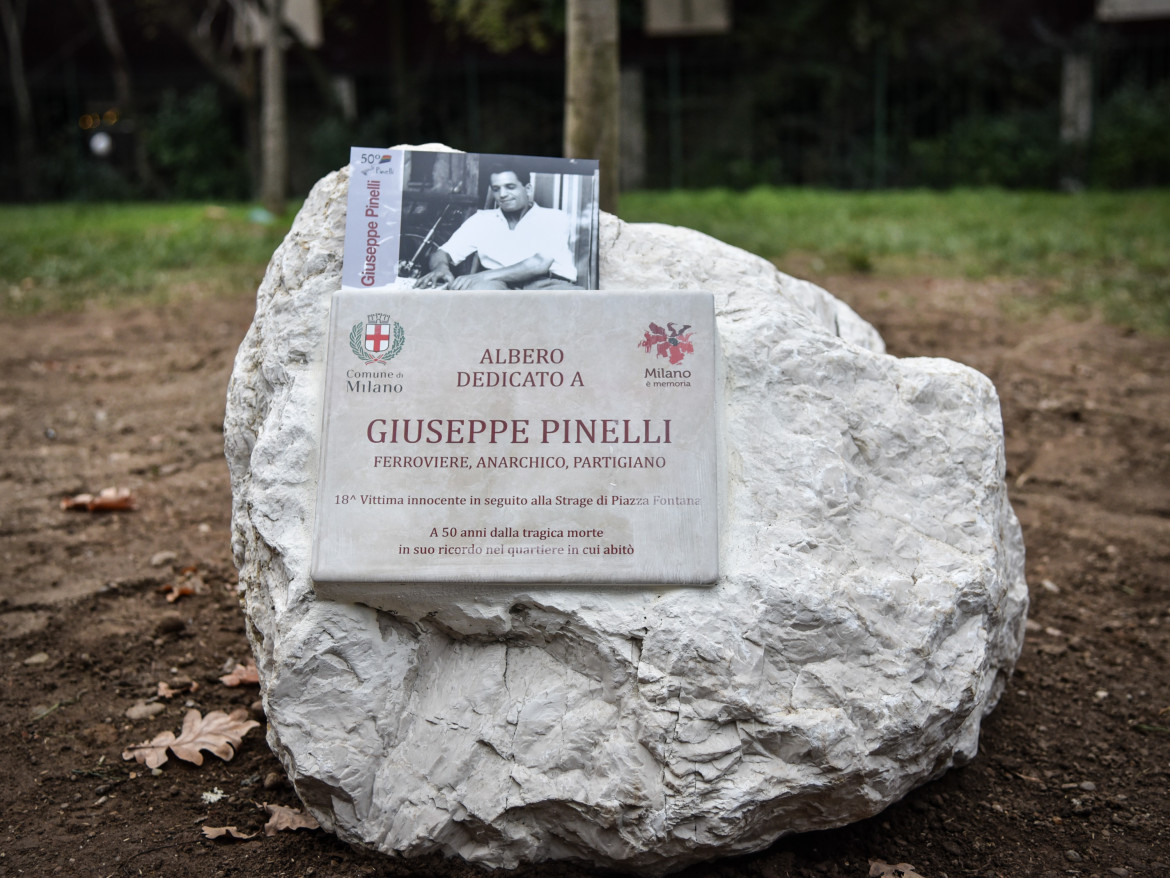Remembrance
Giuseppe Pinelli: The last resistance of a partisan
Pinelli would not give in, and with his act of resistance derailed the intentions of those who had wanted not only to frame him and his comrades, but to write a different history of the country with the massacre of December 12, 1969.

There was a time when Marcello Guida, the former Fascist director of the Ventotene confinement colony, headed the Milan police. During his time in office, Guida illegally detained someone who had been a young partisan in 1944-45, Giuseppe Pinelli.
The war had been over for almost 25 years, but Pinelli’s last act of resistance was carried out in Guida’s police headquarters on the night of December 15, 1969, when he died after jumping from the window of Inspector Luigi Calabresi’s office, who was illegally interrogating him with his men, despite the fact that the terms of police custody had expired for a long time and he was entitled to return home free.
The policemen wanted to force the anarchist railwayman to break. That is, they wanted to extract from him a confession of a non-existent guilt: that of being responsible, together with his companions, for the massacre in Piazza Fontana carried out three days earlier by the neo-fascists of Ordine Nuovo, assisted by men from the security apparatus and the secret services of the state.
The policemen committed a crime against Pinelli (illegal detention) and lied to him during the interrogation, saying his companion had made a false confession (they told him that another anarchist he knew, Pietro Valpreda, had confessed to the massacre).
Pinelli would not give in, and with his act of resistance derailed the intentions of those who had wanted not only to frame him and his comrades, but to write a different history of the country with the massacre of December 12, 1969, a paramilitary operation against unarmed civilians in peacetime, not acknowledged by the perpetrators, carried out with the goal of placing the blame on their political opponents (the political and trade union left, both parliamentary and extra-parliamentary) and aimed at provoking a psychological reaction among public opinion to encourage an authoritarian involution of our constitutional system.
As Silvio Lanaro wrote, these were the years during which the “institutional loyalty” of the armed forces, the propertied classes and the conservative political forces could not “handle the Socialists being in government and the Communists at 25% of the vote,” years in which, as General Mario Arpino would later tell the commission investigating the massacres, “for us in the military, a third of Parliament was the enemy.”
For this reason, it was possible that men of the state supported and covered up the authors and derailed the investigations, making themselves ‘doubly guilty’, as stated by the President of the Republic, Sergio Mattarella, on the 50th anniversary of the massacre, because “you don’t serve the state if you do not serve the Republic and, together with it, democracy.”
It was a time when a former partisan like Giuseppe Pinelli could plummet down from the fourth floor of a police station of the Republic and be slandered even in death, accused of having committed suicide because he was guilty. “This gesture,” said Guida to journalists, “might be equivalent to a confession.”
The judiciary will class the railwayman’s jump as due to “acute illness,” and this version will be engraved as the official truth, including on the plaque placed by the City of Milan in Piazza Fontana which recalls, with modesty of omission, that Pinelli “tragically died.” Next to it, a stone monument represents an “other” and real historical memory of the democratic and anti-fascist Milan. On it, it is recalled that Pinelli was “an innocent who was killed.”
Finally, there was a time when Parliament, by an almost unanimous vote, chose to reject the motion proposing December 12 as the day in memory of the victims of terrorism, and to vote for May 9 instead (the day Aldo Moro’s body was found in Via Caetani in Rome). A preference that was as politically “logical” for the state as it is historically questionable.
The Italian state has chosen to speak of those years with a self-exculpatory narrative that speaks of the actions of an agent from outside the institutions, the Red Brigades, who carry on attacks against the heart of the state. Before the whole country, they omit the fact that the phenomenon of terrorism in Italy had been born from that very heart, many years before. Pinelli understood this, that night in that police station. And after half a century, thanks to him, we know it too.
Originally published at https://ilmanifesto.it/lultima-azione-di-resistenza-di-un-partigiano/ on 2020-12-12
